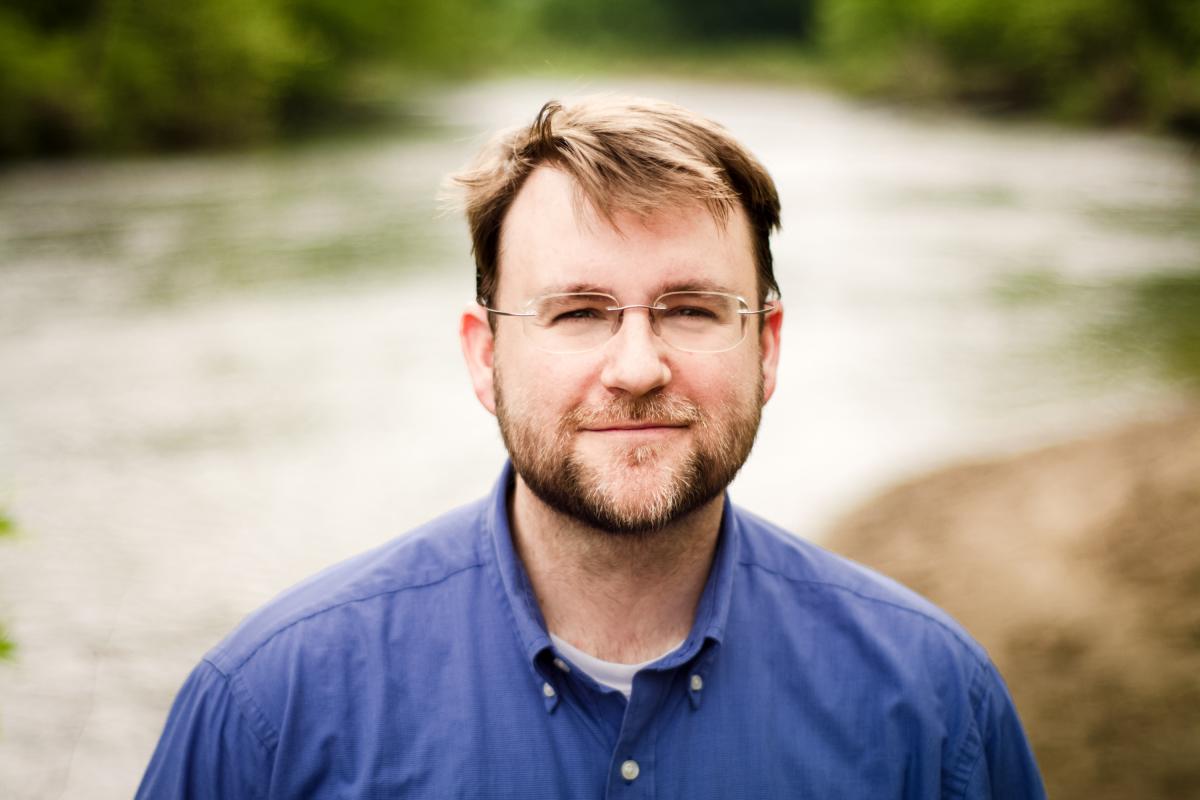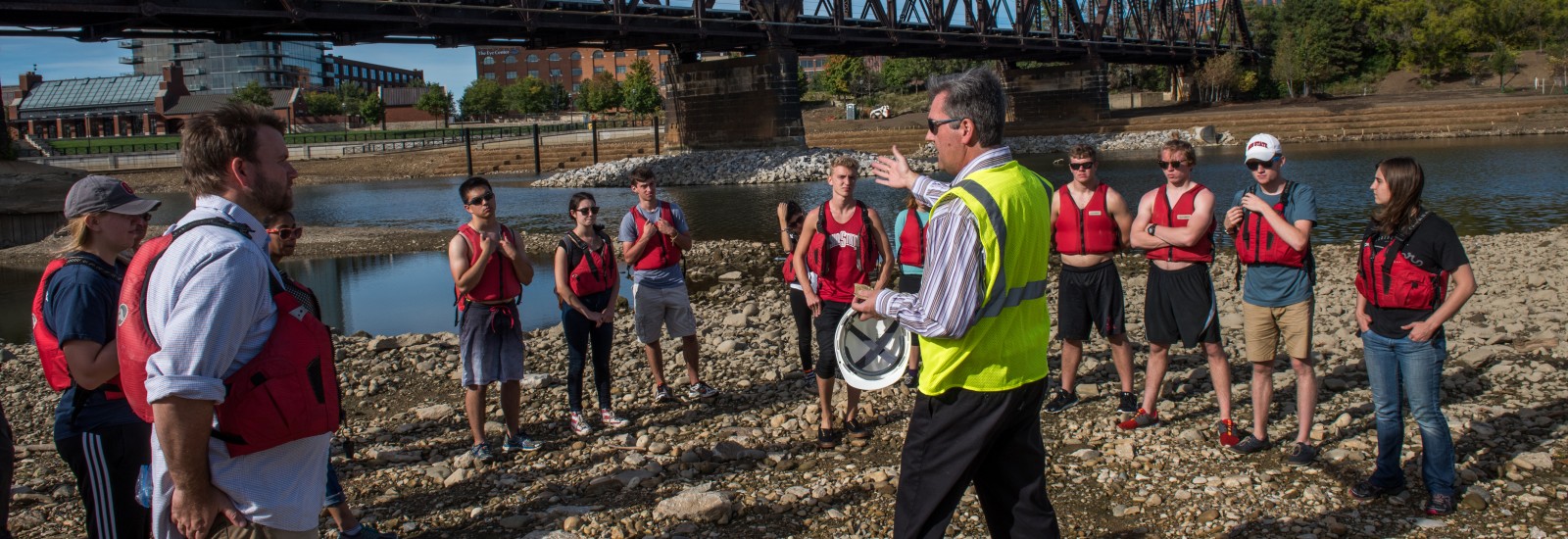Who, what, where, when and how.

This mnemonic may remind you of grade-school reading and writing lessons. But it can also frame the ethics of sustainability.
Piers Turner, associate professor of philosophy and director of Ohio State’s Center for Ethics and Human Values, argues that sustainability is best understood as a set of interrelated problems.
“When people argue about sustainability, they often claim to be disagreeing about the meaning of it, but that’s not helpful,” says Turner, a member of the Sustainability Institute Faculty Advisory Board. “What they really disagree about is how to solve different aspects of the overall challenge, each of which is defined by a different ethical question.” He is pictured above, far left, on a 2015 canoe trip with SUSTAINS learning community students during a Center for Ethics and Human Values program on sustainability; experts explained the river restoration projects going on at the time.
Turner’s research focuses on utilitarianism and liberal political thought — especially the moral and political philosophy of John Stuart Mill, the English philosopher and political economist.
“Mill wrote in the 19th century that humanity would soon need to face the challenges that come ‘when the multiplied human race [has] taken full possession of the earth (and exhausted its principal fuel).’ He was an early proponent of a no-growth economy, which he thought didn’t need to limit human flourishing in other respects,” he says.
Turner defines sustainability and its related ethical challenges succinctly: The problem of indefinitely and justly preserving opportunities for well-being for humans (and maybe other species).
He introduces four W’s and one H to help remember the four key ethical questions built into that formulation.
“Setting aside ‘Where’ (because we don’t have another planet to go to right now),” says Turner, “each ‘W’ names an ethical or moral question that any solution to the challenge of sustainability must answer.”
Turner breaks down the rest:
Who: Humans. But only humans, or also animals, or even whole ecosystems?
“The key ‘Who’ question is whether only humans’ well-being counts, fundamentally,” says Turner. “Most sustainability discussions focus on human well-being, even when considering biodiversity. But is biodiversity valuable independent of human appreciation of it? For his part, Mill thought animals needed to be part of the moral equation.”
What: Preserving opportunities for well-being.
What constitutes “well-being” for humans, animals or ecosystems?
Well-being, Turner explains, is not just about alleviating extreme poverty.
“The crucial thought on the ‘What’ is that ultimately we don’t just want to minimally survive together, we want to provide everyone a ‘good life’ on this planet with a decent standard of living,” he says.
When: Indefinitely. What do we owe future generations?
“The ‘When’ focuses us on arguably the distinctive feature of sustainability ethics: that it concerns well-being over time, for future generations,” Turner says. “It is not just a question of justice right now.”
Population growth, he explains, will matter.
“It is sometimes said that the ‘Population Bomb’ theory of the ’60s was hyperbolic and wrong. But put into a sustainable development context, where we commit to providing a decent standard of living to 10 or 12 billion people in the future, there’s a version of the theory that may have been right after all,” he says. “Bringing developing nations up to a Western standard of living, materially-speaking, will tax our planet, and it is not clear how we can save our planet and give everyone a decent standard of living.”
Where does the “How” come in? That’s “justly.”
“Given sustainability’s challenges, one might be tempted to give up the ‘justice’ or ‘equity’ constraint on solutions to sustainability,” Turner says. “But I think it is a great virtue of the field of sustainability studies that it has accepted the justice constraint as built-in and non-optional.
“Sustainability does not just mean that we preserve opportunities for well-being for the rich or privileged, and one key aspect of that is overcoming environmental racism, domestically and globally.”
How to solve the problem of sustainability is not just about the political, technological and psychological obstacles facing us, Turner argues, it is also about how we should answer each of these four key ethical questions.
Join the Center for Ethics and Human Values’ 2020 Distinguished Lecture in Ethics on Nov. 12. Environmental philosopher and climate policy strategist Andrew Light will deliver the lecture. Light is University Professor of Philosophy, Public Policy and Atmospheric Sciences and director of the Institute for Philosophy and Public Policy at George Mason University. He is also a Distinguished Senior Fellow in the Climate Program at the World Resources Institute in Washington, D.C. From 2013-2016 he served as senior adviser and India counselor to the U.S. Special Envoy on Climate Change, and as a staff climate adviser in Secretary of State John Kerry's Office of Policy Planning in the U.S. Department of State.
